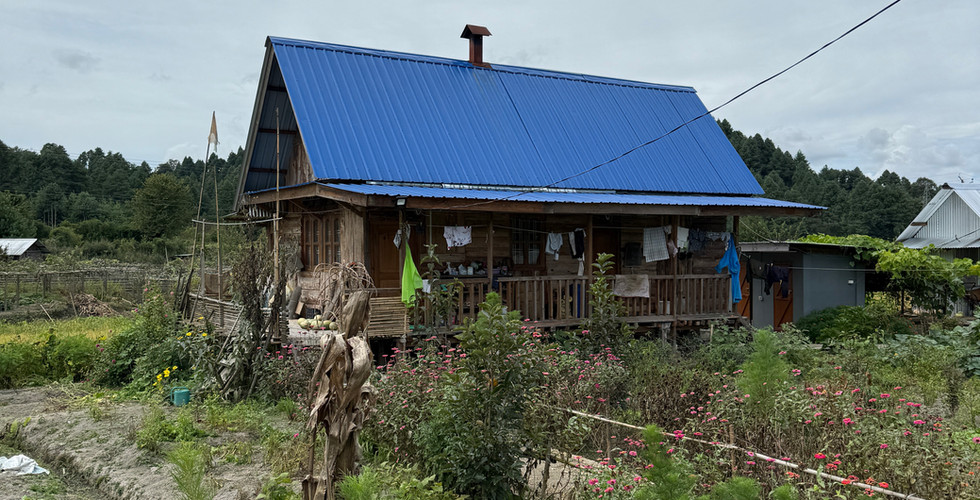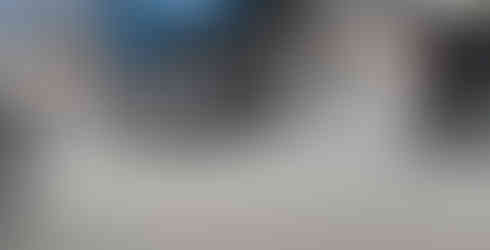- Jan 6
- 5 min read
Updated: Jan 16
Scroll down for a menu of our blogs with countries visited and summaries...

We’re David & Charlotte - once ordinary travellers, now full-time overlanders picking routes as we go, changing plans when reality demands it, and writing it all down honestly as we pass through. Expect culture, chaos and beautiful places that don’t feature on glossy lists. This is our roadbook from the real world: what happens when you set off overland with a bit of planning and a lot of curiosity.
If you’re new here: This was the original post Made it to Morocco and 15 minutes of fame You can start there and work through, but just know it's not a complete account (yet) until you get to From Paperwork to Pastures: A Hard Lesson in the Road Ahead. Which is where we really doubled down to improve the quality and volume ( we blog now twice a month).
If you’ve been before: latest posts are at the top - good to see you back!
If you get lost (as we often do) - you'll find a link from every post links back here.
And before you peruse our posts please do consider subscribing and joining our Facebook Page :D Happy reading!
Blog Link | Country | Points of Interest |
|---|---|---|
India (Varanasi, Ganges River, Delhi, New Delhi Railway Station, Jaipur) |
| |
India (Hyderabad, Ziro Valley, Kolkata) |
| |
Journey recap + what’s next (Europe → Middle East → SE Asia; next leg: Chile / South America) |
| |
Laos (Boten, rainforest, Vang Vieng, Vientiane) Thailand (Bangkok) |
| |
China / Tibet (Khunjerab Pass, Tibet, Lhasa, Nujiang “72 Bends”) |
| |
Pakistan → China → Tibet (Khunjerab Pass; across China; into Tibet) |
| |
Pakistan (Gilgit, Hunza, Karakoram Highway, Sost, Khunjerab Pass) |
| |
Afghanistan (border region, Kunduz, Kabul) |
| |
Tajikistan (Pamir Highway, high-mountain villages, Panj River) |
| |
Kazakhstan → Kyrgyzstan → Mongolia → Turkmenistan → Uzbekistan (Bishkek, Ulaanbaatar, Silk Road cities) |
| |
Türkiye (Pontic Mountains) → Georgia (Batumi, Tbilisi, Gori) → Spain detour → back to Georgia → Armenia (Yerevan) → Russia (Astrakhan) → Kazakhstan (Almaty) | snowbound, Stalin Museum, visa limbo, steppe | |
Oman → Saudi Arabia (Al-Ula, Jeddah, Dakar Rally) → Jordan (Aqaba, Wadi Rum, Petra, Dead Sea) → Iraq (Baghdad, Babylon, Samarra) → Türkiye | Petra, Babylon, military escort, desert camps | |
Iran (Bandar Abbas) → UAE (Dubai/Sharjah) → Saudi Arabia (NE) → Bahrain → Qatar → Oman (Muscat, Nizwa, Wadi Bani Awf) | oil wealth, malls vs. bazaars, desert shock | |
Türkiye → Iran (Tabriz, Tehran, Isfahan, Shiraz) | hospitality, mosques, headscarves, paradox | |
United Kingdom, Europe | Europe dull after Africa, long transit | |
The Scarborough Arms pub, Sunderland Street, Tickhill, Doncaster (UK) | restart, pub car park, community | |
UK (Doncaster; planning: Turkey, Georgia, Russia, Kazakhstan, Caspian Sea, Mongolia) | truck repairs, twisted chassis, waiting | |
Kenya (blocked) → Zambia → Namibia (Caprivi Strip) → Angola → DRC → Congo → Cameroon → Nigeria → Benin → Togo → Ghana → Côte d’Ivoire → Guinea-Conakry → Morocco → Spain → UK | 16,000 km detour, gangs, corruption, despair | |
Tanzania (Mbeya) → Kenya (Nairobi) → Uganda (Kampala) → Rwanda → back to Tanzania | Rwanda cleanliness, Nairobi extremes, fatigue | |
Zambia (Livingstone northwards; rural maize fields) | elephant deterrents, chilli, maize fields | |
Zimbabwe (Victoria Falls) | Victoria Falls, resilience, currency chaos | |
Botswana (Francistown, Maun, Okavango Delta, Makgadikgadi salt pans, Chobe, Kasane) | elephants, lions, salt pans, wild camping | |
Namibia → South Africa (Cape Town, wine country) | vineyards, comfort, repairs, “a different Africa” | |
Republic of Congo (Congo-Brazzaville, jungle tracks) | storms, rivers, isolation, raw nature | |
DRC (towards Kinshasa) | corruption, mud, bribes, survival | |
Senegal (Dakar, coastal towns) Angola (Luanda, rural roads, waterfalls area) | first West Africa, heat, traffic, culture shock, malaria talk, police kindness, washed-out bridge | |
Senegal (Ziguinchor) → Turkey, Bulgaria, Albania, Kosovo, North Macedonia, Serbia, Montenegro, Bosnia, Croatia, Slovenia, Austria, Slovakia → UK | catch-up, road rhythm, settling into Africa, Balkans, war scars, daughter’s wedding | |
The Gambia (Banjul) → Guinea-Bissau | border crossing, desert, sense of isolation, yellow fever jabs, visas, constant resets | |
Western Sahara (Atlantic coast) Senegal (east) → The Gambia (Banjul, Atlantic coast) | coastal drive, wind, relief from heat, river country, heat, fantasy cocktails | |
Senegal (Dakar, Bassari region, Atlantic coast) | arrival, bureaucracy, intense heat, Bassari initiation, flamingos, village life | |
Morocco (Tiznit, Casablanca) → Senegal (Dakar) | shipping the truck, paperwork, waiting game, drone hiding, first separation | |
Morocco (Tangier, Tiznit, Agadir, Taroudant) → Western Sahara (Atlantic coast) | long drives, sand, first taste of Africa. Berber wedding, sandstorms, hospitality, visa limbo | |
UK (Doncaster, Harwich) → Netherlands (Hook of Holland) → Belgium → Luxembourg → France (Normandy) → Spain → Italy (Genoa) → Morocco (Tangier Med) | arrival, press attention, excitement, media, Channel 5, emotional departure, Covid border dash |
















































































































